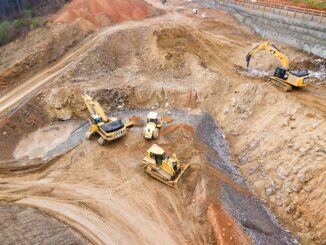Long before climate change make people aware of the necessity for environmental regulation and rules, governments of all persuasions bought in numerous laws and regulations relating to the environmental impact of certain industries and businesses.
Agriculture is normally included in most of these laws and regulations, and may even have some additional environmental concerns addressed through specific legislation.
Production of food either fruit, vegetables or livestock is a staple part of modern society and farmers and agricultural businesses are normally held to a very high standard in terms of what they produce and how they produce it.
This inevitably affects how farms run as a business, needing to make sure amongst other things that they protect themselves against any liability through not complying with local, state or federal legal obligations.
Water / Air Pollution
Water and air are perhaps two of the most basic commodities that affect people’s lives, both in a healthy and a detrimental way. Air Pollution is often associated with clouds of smoke coming out of huge industrial chimneys, situated near rivers and lakes.
That is a slightly stereotypical few, often expressed in personal injury type films, often seen as a battle against big or global chemical companies.
The reality as climate change has demonstrated is that air pollution certainly in major cities is a real determinate in affecting people and children’s health not just in relation to things like asthma, but general respiratory conditions in all ages.
Water pollution is also a major issue, often with utility companies sometimes not being as clinically efficient as they should be in terms of wast disposal, and at other times disposing of toxic waste or switch into lakes, rivers or streams in ways that harm the environment, even if legal.
Air and water pollution are potentially major threats to people’s health, and most environments have fairly stringent rules and regulations as to what can and cannot be done.
This can include specific standards for drinking water, as well as stringent controls over the use of pesticides, the type of pesticides and who has authority to use them and in what circumstances.
Waste Disposal
Most people think of waste disposal in terms of household waste or possibly commercial waste in relation to businesses such as restaurants, cafes or similar.
Waste disposal in relation to agriculture and construction normally focuses on a number of very specific areas which can be really problematic from an environmental point of view, if the disposal of these items is not done properly.
That may well be legislation in force to ensure specific items and products are disposed of in an appropriate manner.
This normally refers to items such as how to get rid of batteries, tires, used oil and gasoline, manure and generally appropriate ways of burning items that can have a negative effect on the environment.
Employers who are involved in any type of business or industry that generates this type of waste disposal have usually been subject to various laws and regulations, sometimes with quite stiff penalties if they are not observed.
The advancing environmental impact of climate change has focused people’s minds even more on most of these areas, and it is likely that regulations and penalties are likely to become even more stringent in the future.
A much greater focus is put on recycling all items were possible, and there is significant pressure on farmers and the agricultural community to come up with different ways of recycling, or or products that allow them to be recycled these as opposed to simply burning or burying them.


